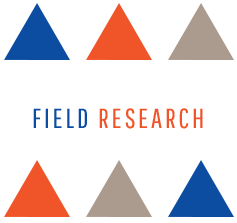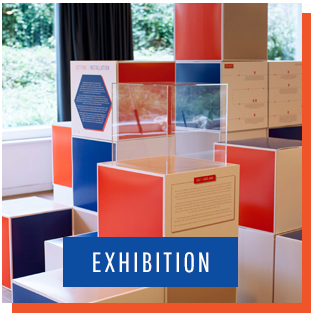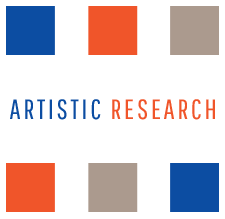PROJECT PARTICIPANTS
Professor Volkhard Krech (project leader)Religious Studies, Ruhr University Bochum, Germany
Volkhard Krech is professor for religious studies and director of the interdisciplinary Center for Religious Studies at Ruhr Universität Bochum, Germany. Among others, his research interests include religious pluralism and globalization, religion and art, and the theory of the history of religions. Besides being the project leader of the Iconic Religion research project he heads the international Käte Hamburger Kolleg Dynamics in the History of Religions between Asia and Europe.
Professor Kim Knott (principal investigator)Religious Studies, Lancaster University, UK
Kim Knott is Professor of Religious and Secular Studies in the Department of Politics, Philosophy and Religion at Lancaster University, UK. She is Deputy Director of CREST, the national Centre for Research and Evidence on Security Threats. Her current areas of interest include: religion, place and space; migration and diasporas; ideologies and the move to violence. She is Co-Investigator of Iconic Religion, and directs the London case study.
Professor Birgit Meyer (principal investigator)Religious Studies, Utrecht University, The Netherlands
Birgit Meyer is an anthropologist and scholar in religious studies. Since the late 1980s she has conducted research on religion in Africa. One of the prime foci of her historical and ethnographic work in Ghana concerns the dynamics of religion taking place in the city. This involves both a study of the popularity of Pentecostal-charismatic churches which profile modern notions of personhood and of the rise of an urban culture replete with Pentecostal visible and audible markers. On the basis of her longstanding research in Ghana, she developed a material approach to religion that emphasizes the importance of taking material forms – such as objects, pictures, buildings, sounds, texts – and the sensing body as cornerstones for the study of religion. In the context of the Iconic Religion project, she is further fleshing out this approach, paying special attention to visual culture and the icon.
Dr Susanne Lanwerd (project coordination and exhibition)Religious Studies, Freie Universität Berlin & Ruhr-Universität Bochum, Germany
Susanne Lanwerd was trained in Religious Studies. From 2000 to date she has held several visiting professorships for religious -, gender – and / or cultural studies, in Germany and abroad. She got research grants from Free University Berlin (2004/2006) and University of Vienna (2007/2008). Susanne Lanwerd was research fellow at the ZRWP / Collegium Helveticum in Zürich and Basel, from May, 2008 to November, 2009. From November 2009 to December 2012 she was project manager of “Experimentierfeld Museologie”, a research - and exhibition project on the transfer of Islamic art and cultural history (funded by VolkswagenStiftung). In 2013 she was research fellow of the Käte Hamburger Kolleg “Dynamics in the History of Religions” (Bochum) where she worked on migratory aesthetics as well as on religions in exhibitions and museums. From September 2013 to August 2016 she has been coordinator of the project Iconic Religion. From 2017 onwards she will be Professor of Religious Studies at the International Psychoanalytic University Berlin.
Dr Steph Berns (researcher)Religious Studies, Lancaster University, UK
Steph Berns is a post-doctoral researcher working within the field of sociology of religion. In 2016, she completed work on an ethnographic research study in London for the Iconic Religion project, about the interrelationship between religious events and the urban landscape. Prior to this, she completed a Collaborative Doctorate with the University of Kent and the British Museum on visitors performing religious practices in museums.
Dr Daan Beekers (researcher)Religious Studies, Utrecht University, The Netherlands
Daan Beekers is an anthropologist working on religious pluralism in the Netherlands. He studied social and cultural anthropology at the University of Amsterdam and the University of Oxford, and obtained his PhD from VU University Amsterdam in 2015. He is currently a post-doctoral researcher at the Department of Philosophy and Religious Studies at Utrecht University. Between 2014 and 2016 he worked on the Iconic Religion sub-project focusing on Amsterdam. Since September 2016 he has been affiliated with the research project Religious Matters in an Entangled World.
ARTISTS
Nina Gschlößl
Nina Gschlößl is a documentary photographer with a main focus on the social and political aspects of urbanization and globalization. Born in 1985, she is currently doing her MA in Photography Studies and Practice at Folkwang University of Arts in Essen, after completing her BA in Documentary Photography. Having worked on several photography-books, she increasingly concentrated on the usage of moving images and is now working between photography, film and video. See website
Henriette Kriese
Henriette Kriese studied media arts and photography at Bauhaus University Weimar and Pratt Institute New York. Currently she takes part in the master programme at Folkwang University of the Arts Essen. Besides many exhibitions in Germany as well as internationally she received diverse awards, like the art award of the Free State of Thuringia. See website
Tania Reinicke
Tania Reinicke lives and works as an independent artist in the Ruhr area. A main focal point of her work is the photographic and theoretical examination of 'space'. Currently she is working on the intersection between photography and media installations in which she examines the relationship between image-space and spatial imagination. See website
CONCEPT AND DESIGN
FLMHLabor für Politik und Kommunikation
FLMH Labor für Politik und Kommunikation is a communications agency based in Berlin, Germany. They work primarily for non-profit organisations, educational institutions and government agencies in the fields of sustainable development, anti-racism and conflict resolution, among others. With a team of editors, writers, graphic designers and web developers, FLMH creates and implements campaigns, websites, exhibitions, videos, and print material. Knowledge transfer from scientific or expert communities to the public is one of their key competencies.
FLMH was commissioned with developing a concept and design for the “Urban Sacred” exhibition in mid-2015. They also organised and carried through the transport of the exhibition from city to city, the installing and de-installing at the four different venues, and the development of the digital exhibition. See website


